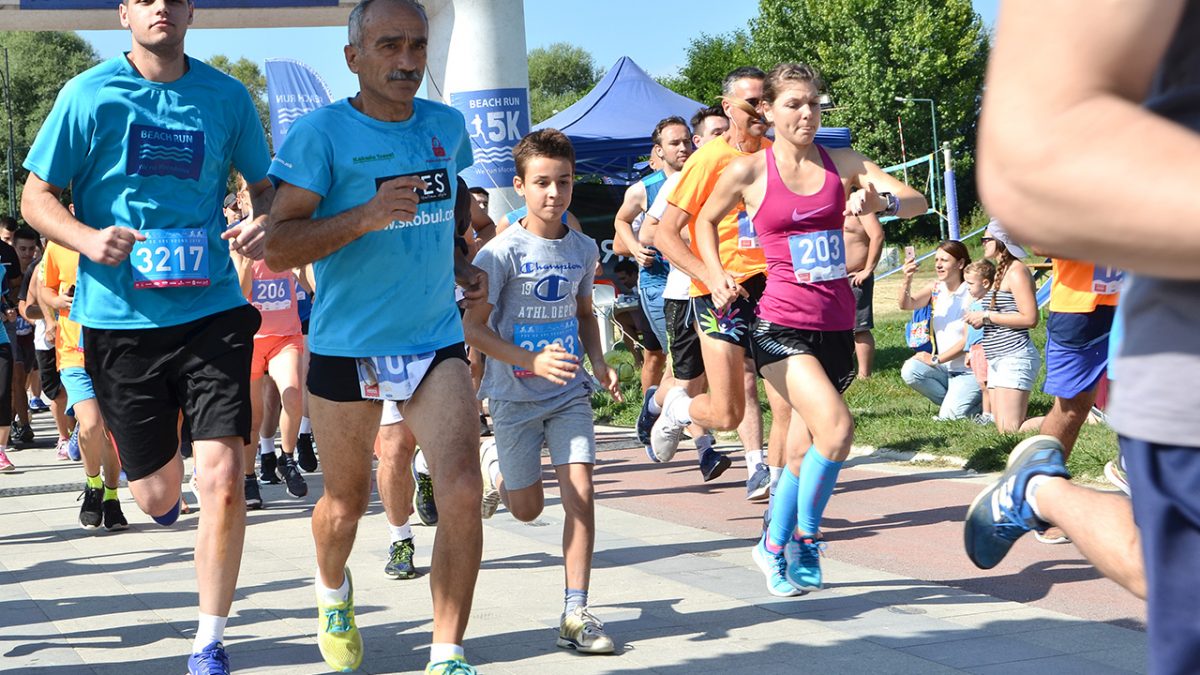
How to Find the Best Places to Run
26.05.2019
Belgian-Dutch Study: Why in times of COVID-19 you should not walk/run/bike close behind each other
20.04.202011 Reasons to Start Running

People start running for a variety of reasons. Some run because they want to lose weight, improve their health, compete in races or try something new.
Whatever your reason is for running, you’ll experience many physical, mental and emotional benefits of the sport. Here are some great reasons to get started with running.
Running Improves Your Health
One of the biggest benefits of running is that it’s good for your health. Running is an excellent way to strengthen the heart and ensure the efficient flow of blood and oxygen throughout the body, which helps decrease your risk of a heart attack.
Exercise, combined with maintaining a healthy weight, is one of the best ways to naturally reduce your blood pressure if it’s above normal. If you have high cholesterol, running can also help keep it in check. Running and other weight-bearing exercises also increase bone density, which can fend off osteoporosis.
Including running into your fitness routine can also improve your immune system, so your body functions are more effective and efficient at fighting off germs.
You Can Lose Weight
Many people start running to lose some extra pounds. As one of the most vigorous exercises out there, running is an extremely efficient way to burn calories and lose weight. If you’re already at a healthy weight, running can help you maintain it. Running increases your “after-burn”, or excess post-exercise oxygen consumption (EPOC). This means that the number of calories you burn after a workout is increased when you include running in your fitness routine.
Some runners do notice an upswing in their weight, and often and often wonder why they are not losing weight with running. Simply put, running does not give you a license to eat anything you want. The basic rule of weight loss is that you must burn (through life functions and exercise) more calories than you take in. Be sure to follow a proper running plan AND a healthy, calorie-appropriate nutrition plan if you are looking to shed a specific number of pounds.
You Can Meet New People
Some runners enjoy the quiet and solitude of running on their own, but others see running time as social opportunities, even finding romance through running. Finding a running buddy or running with a group is a great way to develop a sense of community. You can set goals and accomplish them together. In addition, having a regular running buddy or running group is a great way to stay motivated to run.
Some runners also share advice and motivation with other runners in online forums or through social media. You can meet other people who share your obsession with running, celebrate your triumphs, and find help to overcome any obstacles you may face in your training.
Safer workouts, increased motivation, improved performance, reduced boredom, and a sense of community are just a few of the benefits that come with group running.
You Can Run for a Cause
Running can also be used as a way to contribute to society as a whole. Many races benefit charities, and some charities offer race training in exchange for fund-raising.
Running for something that’s bigger than you is a great way to stay motivated to keep training and can make your races even more meaningful and fulfilling.
Most charities organizing a marathon will provide plenty of support for their runners. This usually means that before, during and after an event you can find training plans, as well as fundraising tips for runners, in the weeks leading up to the race. You will also be able to get help with other arrangements to ensure you feel well prepared when you are standing on the start line. This type of support can help those who are new to running or marathons to develop a sound running plan while taking part in a good cause.
Running Is Good for Your Memory
Aside from promoting neurogenesis (the process behind new nerve cell growth), there is evidence that consistent aerobic exercise helps combat age-related mental decline, according to a study published in Psychonomic Bulletin & Review. Vital functions in mental ability, such as switching between tasks, problem-solving and memory recall are better in people who participate in aerobic activity, like running. What’s more, running may help guard you against Alzheimer’s disease and other diseases that affect cognitive ability.
You Can Train for a Specific Goal
Some people hate to exercise just for the sake of exercising, but with running, you can train for races, which can definitely help improve your motivation to run.
From 5Ks to half marathons and beyond, you can find 5K training plans, 10K training plans, and half marathon training plans that set you up with a solid and consistent plan that is different from just using gym equipment like elliptical machines. Training for a race gives you a specific goal to work toward, and once you are over your racing fears you will have new goals to work towards.
Running Improves Your Energy Levels
When you’re feeling sluggish or tired, running, combined with a healthful diet is a great way to boost your energy.
You might also want to consider setting your alarm 30 to 45 minutes earlier than your usual wake up time, since runners who run in the morning report that they have improved energy levels during the day.
A 2012 study in the Journal of Adolescent Health proved that just 30 minutes of running during the week for three weeks boosted sleep quality, mood, and concentration during the day.
Running Will Help You Feel Good About Yourself
Regular runners report an increase in their confidence and self-esteem, and the self-esteem benefits of running are increased if you set a specific goal, such as running a 5K or even a marathon, and accomplish it. These benefits will undoubtedly spill over to other areas, such as your professional and personal life.
A regular running or jogging regimen can also lead to improved perceptions of fitness and improved body image, both of which were linked to improved self-esteem, according to research published in Neuropsychiatric Disease and Treatment.
Running Is Versatile and Inexpensive
Running requires very little equipment, and it can be done almost anywhere. You don’t even need a gym membership. All you need is a good pair of running shoes, and you can head out your door to go for a run. From city sidewalks to wooded trails, there are plenty of places for runners to explore—at no cost. If you travel a lot, it’s easy to pack your running shoes and run while you’re on the road.
Running is also a great way to expand your horizons and break away from the daily grind. The sport gives people the opportunity to explore areas of their own community or new locations, experience new physical sensations and run places they may not normally see.
You’ll Be Part of a Community
Runners share a bond that goes deep and they support each other in running and many other aspects of their lives. They have shared experiences, both good and bad, that allows them to connect on so many levels. Many runners find that their running communities inspire and motivate them to continue running.
Running also allows people to come together to help others, whether it’s encouraging one another to achieve personal health and athletic goals, raising money for causes, or making a difference in their community.
Running Can Help with Stress Relief
Running—as with many forms of exercise—is a great cure for stress, emotional strain, and even mild depression. Anyone who has experienced a runner’s high knows that the endorphins (those feel-good hormones) produced by running can boost your mood.
Using brain imaging, researchers found that a long-distance run increased opioid binding throughout several areas of the brain, according to research published in Cerebral Cortex. This increased opioid binding triggers the release of endorphins, leaving participants feeling a subjective sense of euphoria. This means that healthy adults who exercise regularly are generally happier than those who don’t.
Source: Very well fit



